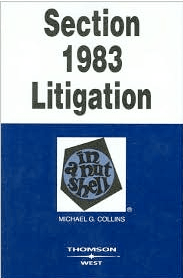Search
Appellate Court Decision Expands Nursing Home Patient Rights
 In Grammer v. John J. Kane Regional Centers, the Third U.S. Circuit Court of Appeals ruled that nursing home residents can bring civil rights actions under 42 U.S.C. Section 1983. This new cause of action allows residents to challenge the quality of treatment received by bringing a civil rights claim.
In Grammer v. John J. Kane Regional Centers, the Third U.S. Circuit Court of Appeals ruled that nursing home residents can bring civil rights actions under 42 U.S.C. Section 1983. This new cause of action allows residents to challenge the quality of treatment received by bringing a civil rights claim.
In this case, Melvinteen Daniels, an 80 year old mother of eight, died in the John J. Kane Regional Center, an Allegheny County, PA operated nursing home facility. As a result of the facility’s failure to provide proper care, Ms. Daniels suffered from malnourishment and pressure sores, which led to sepsis and death. The administrator of Ms. Daniels’ estate brought a claim under Section 1983 for wrongful death and survival, alleging that the Kane Center deprived Ms. Daniels of her civil rights for failing to ensure quality care under the Federal Nursing Home Reform Amendments (FNHRA).
Congress passed the FNHRA in 1987 as part of the Omnibus Budget Reconciliation Act to provide oversight and inspection of nursing homes participating in Medicare and Medicaid programs. U.S. Circuit Judge Richard L. Nygaard, joined by U.S. Circuit Judge D. Brooks Smith, wrote the twenty-three page opinion, ruling that the language in the FNHRA “is explicitly and unambiguously rights-creating.” Section 1983 is an avenue for imposing liability against anyone who deprives a person of “rights, privileges, or immunities secured by the Constitution and laws.”
In his opinion, Judge Nygaard referred to language in the FNHRA that shows Congress’ intent to create a private right of action. The language used in the statute including the repeated use of “must” (“must provide” and “must care”) shows that the statute unambiguously binds the states and nursing homes. The FNHRA also uses the word “residents,” clearly showing that the provisions are “phrased in terms of persons benefitted.” The statute also stresses that the “residents” have the “right to be free from physical or mental abuse, corporal punishment, involuntary seclusion, and any physical or chemical restraints imposed for the purposes of discipline or convenience and not required to treat the resident’s medical symptoms.” The legislative history of the FNHRA also supports the conclusion that Congress intended to create a right of action. Therefore, the court concluded that Congress used “rights-creating language sufficient to unambiguously confer individually enforceable rights.”
Under the FNHRA, nursing homes “are required to care for residents in a manner promoting quality of life, provide services and activities to maintain the highest practicable physical, mental and psychosocial well-being of residents, and conduct comprehensive assessments of their functional abilities.” Judge Nygaard stated that “nursing homes must provide a basic level of service and care for residents and Medicaid patients.”
U.S. District Court Judge William H. Stafford Jr. wrote the dissenting opinion, holding that a nursing home resident cannot sue a nursing home under Section 1983. The dissent stated that this case did not follow the U.S. Supreme Court’s warning not to create new causes of action unless Congress’ intent clearly and ambiguously created that right.
What this means for nursing home patients:
Nursing home residents now have the right to bring lawsuits under Section 1983. Residents can challenge the quality of treatment received by bringing a civil rights action. Therefore, a resident who does not receive the care and services necessary to maintain the best physical, mental, and psychological well-being has an additional avenue to impose liability against nursing home facilities that fail to meet the standards set forth in the FNHRA.
The standards set forth in the FNHRA include the Resident’s Bill of Rights:
- The right to freedom from abuse, mistreatment, and neglect;
- The right to freedom from physical restraints;
- The right to privacy;
- The right to accommodation of medical, physical, psychological, and social needs;
- The right to participate in resident and family groups;
- The right to be treated with dignity;
- The right to exercise self-determination;
- The right to communicate freely;
- The right to participate in the review of one’s care plan;
- To be fully informed in advance about any changes in care, treatment, or change of status in the facility; and
- The right to voice grievances without discrimination or reprisal
Grammer v. John J. Kane Regional Centers further ensures that nursing home residents receive quality care. This is very important because the elderly are particularly susceptible to abuse and neglect in many state and county run nursing home facilities.
As an attorney who frequently encounters situations involving mistreatment of people in nursing homes, I would be happy to discuss the prospective implications of this case with you or your family. (800) 926-7565
 Nursing Home Law News
Nursing Home Law News

